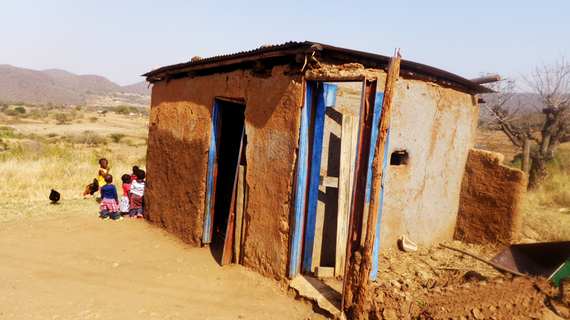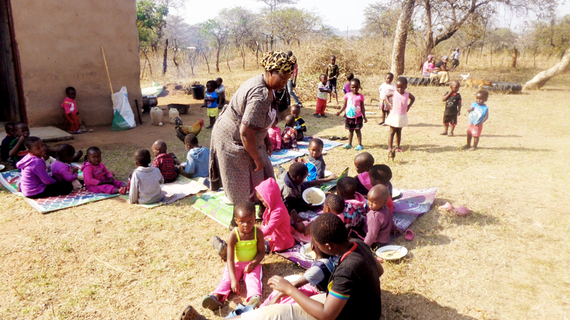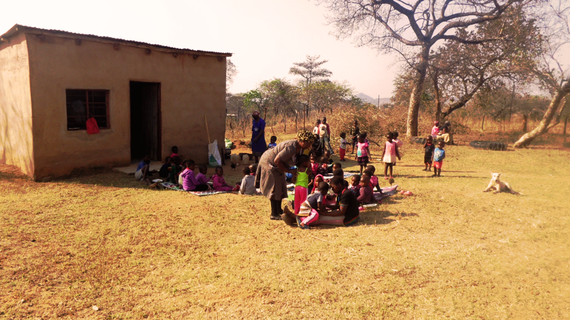By Hannah Laufer-Rottman (Palms for Life Executive Director) | Contributing Author: Stephanie Login-McGinn (Palms for Life Program Advisor)
As Palms for Life Fund implements its second development project in Swaziland, we are constantly faced with questions that give us tremendous pause for thought:
- As a global citizen, who is responsible for the well-being of children, and especially vulnerable children, around the world?
- What does development mean in the context of a country with extreme poverty, and often-unreliable social services and policies?
- Who is responsible for "development"? What is the role of local Government? Of communities? Of NGOs? Of non-locals?
- How can we hold people, communities, and Governments accountable for development when there are so many competing priorities for basic needs, especially for vulnerable people?
We are talking about human rights - basic needs and access to basic services - which include things like:
- Safe and reliable water (When was the last time you opened a tap and nothing came out?)
- Nutritious food (When was the last time you were hungry and had nothing, absolutely nothing,in the cupboard?)
- Any type of latrine (Have you ever had to squat on the side of a road, or in the bushes?)
- Toilet paper (Imagine using old newspapers or stones and leaves to wipe yourself)
- Tampons or menstrual pads (Can you imagine the burden for women and girls who can't access these supplies?)
- Soap to wash hands (Especially after squatting in the bushes.)
- Education (Consider a classroom with 50 children per teacher; or rather no classroom at all, just a place under a tree where you can go as long as it's not raining).
We're talking about access to the most basic of rights- things that every human being should have. So we ask again: what is the meaning of development, and how can we achieve sustainability?
These key questions guide us in managing any project and honoring our commitment to ourselves and to our donors. In 2014, we committed to implementing a development project, mainly thanks to EU funding, in Swaziland. This project hopes to provide improved services to about 3000 of the most vulnerable children in Swaziland, in a sustainable way. The goal is to radically transform the potential of those children- coming from various situations of orphanhood, sometime abandonment, poverty, malnourishment-- to a situation where these children will have the same life-opportunities as other children in Swaziland, as children in countries with better social services and child protection.
For this project, the goal is to prepare children under five to enter primary school with a set of skills and abilities that will put them on par with other children who have had better original circumstances in life. This should be development.
How do we do this? How can we succeed in this enormous transformation? How can we make it lasting?
In the project office in Swaziland, we are faced with these questions every day. We grapple with how to engage communities, who are indeed ultimately responsible for these vulnerable children. How do we motivate communities to come together, to find a unified voice, and to take responsibility for these children, within their means?
The needs of these vulnerable children are enormous and complex. For this project, we are considering their needs within the pre-school environment. They need to be taken care of in a location that is safe and suitable for children. What does that mean exactly? It is a place where the walls and roof will not collapse; a place that has windows and fresh air; a place with tables, chairs, and clean walls; a place that has a kitchen with all necessary basic equipment. These children need to have access to clean water; they need to be able to wash their hands when they come out of a latrine and before they eat. They need to have suitable latrines. They need to eat a nutritious meal, twice a day, breakfast and lunch, outside their home. They need to be under the care of people who are fully trained in early childhood care and development. They need things to play with, proper clothing, proper shoes, etc. These are not luxuries. These are just basic needs, for all children in the world.
How do we achieve this? As we work in Swaziland, we discover that community participation is a key ingredient and, in many areas, is lacking. We come across communities that do not have these basic expectations for their children, or the ability to enact their expectations, perhaps because the adults also did not have access to many of these basic rights. Leadership is often not trained on how to motivate or manage community projects. Caregivers often have a grade 6 or 8-equivalent education themselves, but are expected to share essential lifeskills and learning. Many Caregivers work without any form of income or compensation, other than occasional food parcels. While many good intentions are regularly expressed, there is little systematic application of the policies that protect and serve vulnerable children.
This is our challenge, and from experience, we know that our best bet is to work on two fronts:
- Systematically advocate for the rights of children and access to all of these basic services at the highest possible level - not out of charity, but out of a shared assumption that we all have basic human rights.
- Identify who is going to assume actual responsibility, day in and day out, for bringing these services to children...this year, next year, and in 10 years.
This brings up the thorny question of sustainability. We have now learned that the best chance for sustainability is to involve the community as a whole, in a sincere, meaningful and culturally appropriate way. It takes time and effort to share information, listen, build knowledge, create a sense of ownership, negotiate partnership, ensure real and active participation, mobilize partnering contributions so that development does not mean hand-outs, provide leadership training, create the ability for micro-democracies to express themselves, work within the established local culture. We want to contribute toward growing responsibility and accountability. We want to promote dignity.
Is this development? Should it not be to our pride to show the world that, as a global community, we assume the full responsibility for the fate of all children? That is the key message that we intend to share with communities in Swaziland, from sitting under a tree with rural men and women, to meetings in Government offices. We truly believe that this is a global message.
This is the challenge, this is the complexity, and this is what we believe development should be.
___________
Palms for Life Fund's mission is to advocate for and support the creation of infrastructure that provides access to education, food, water and sanitation for vulnerable communities throughout Africa, Latin America and Asia. We operate from a basic human rights perspective - because access to safe and sustainable food, water, sanitation and education is a right not just a humanitarian issue.
Learn more about our work at palmsforlife.org


